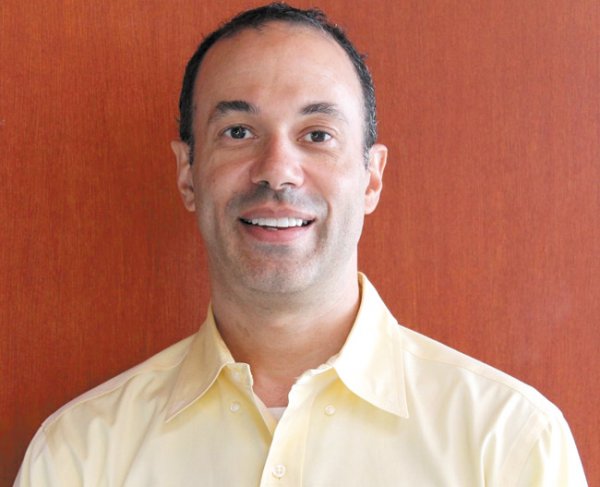Testing For Bladder Cancer
Dr. Charles J. Rosser
Director of the clinical and translational research program at UH Cancer Center
Where did you receive your schooling and training?
I did my undergrad at Fairleigh Dickinson University in New Jersey. I went to medical school at Rutgers State University in New Jersey, and went to Wake Forest University School of Medicine to do my residency. After that, I went to University of Texas MD Anderson Cancer Center to do my urologic oncology fellowship, and then got my faculty appointment at University of Florida.
mw-dih-082714-dr-charles-rosser
How long have you been engaged in research?
I’ve been in practice and doing research since 2003. In addition to my research at University of Hawaii Cancer Center, I am also a practicing physician at The Queen’s Medical Center and Pali Momi. I am also a professor at the cancer center and at the UH John A. Burns School of Medicine.
What attracted you to being a research specialist?
I like trying to discover things, particularly with cancer because it’s always been a thorn in our sides. I really got interested in that in medical school and decided I need to do cancer research.
What is translational research?
Translational research means we have found something in the laboratory and we want to translate that into something that’s useful in the clinic. Or vice versa, we have a problem in the clinic and we need to take it back to the laboratory to learn a little more about it.
What made you zero in on bladder cancer?
Bladder cancer is an underrepresented type of cancer being studied. Many people study breast cancer, prostate cancer, colon cancer — and there’s millions of dollars directed at some of these top cancers. Bladder cancer is a huge problem in the United States, yet not much attention is geared toward it. That has caused me, over the past 10 years, to move that way. When you look at the numbers, 500,000 people have bladder cancer in the U.S., making it the second most prevalent cancer in the U.S. after colorectal cancer.
What are the symptoms of bladder cancer?
The No. 1 symptom is blood in the urine. Once you see blood in your urine, consider testing for bladder cancer.
Can you say something about the $50,000 Weinman Innovator Award you just won?
I’ve been working on coming up with a better way to diagnose bladder cancer. Right now, we have to put a little TV camera into the patient’s bladder, see the cancer and biopsy it. It’s not as easy as some current tests, where we can look at urine to see if there’s cancer, but they’re not very good and might come back positive if there’s a urinary tract infection.
We set out eight years ago to come up with a better way to diagnose bladder cancer, looking at genes or proteins in the urine that might predict bladder cancer. Before we would only look at one gene or protein, but now we look at strings of genes or proteins together to come up with a diagnosis of bladder cancer. We tested more than 700 patients, and we’re pushing forward to a commercial test that can be used in the hospital some day. Ideally, what we want is to be able to get a urine sample and test right in the doctor’s office whether they have bladder cancer. We would try to employ the same technology as the early pregnancy test, where the color change can tell you if there’s cancer there or not.
What will you do with the $50,000?
It will go into further research.
We identified 10 proteins that show there is bladder cancer in the urine. When we did these on patients, we used kits typical in the research lab to test for these 10 certain proteins. What we want is to not have 10 kits to work with, but one kit that can check for bladder cancer. The money is allowing us to produce a kit that can be used to identify bladder cancer. It will cut down on the time to run the test and the cost as well.
Once we have the kit, we would want to use it on patients coming in with prospective bladder cancer and on patients who already have bladder cancer. If we get two positives, we will then push to get this FDA-approved. In the best-case scenario, in less than five years we will have something on the market.
Anything else you’d like to mention?
We’re trying to do things related to diagnosing cancer right now, but we also realize we can take these same genes and proteins that we’re using to diagnose it, and turn it around to try to prevent bladder cancer. These are genes and proteins that shouldn’t be there. Can we treat and try to change that? That’s the other thing we have going that’s exciting. We have new clinical trials using some of our technology from the laboratory that we’re bringing to our patients. We’ve just received approval from our institute to open the earliest stages of a clinical trial to treat our patients for bladder cancer. The study is perceived to be so novel that the National Cancer Institute already has funded us for the study. Now other investigators at UCLA, University of Washington, University of Alabama ― when they were looking at studies of bladder cancer, they saw what we’re doing and they want to get on board as well. The cool thing is we’re the ones driving the study. We’re leading the nation in this clinical trial. We’re doing things not only to help diagnose cancers earlier so we can treat them at a state where we have a better chance of curing them, but we’re also coming up with the cures for it as well. We’re looking at ways to diagnose, prevent and treat with the research we’re doing at the cancer center.






